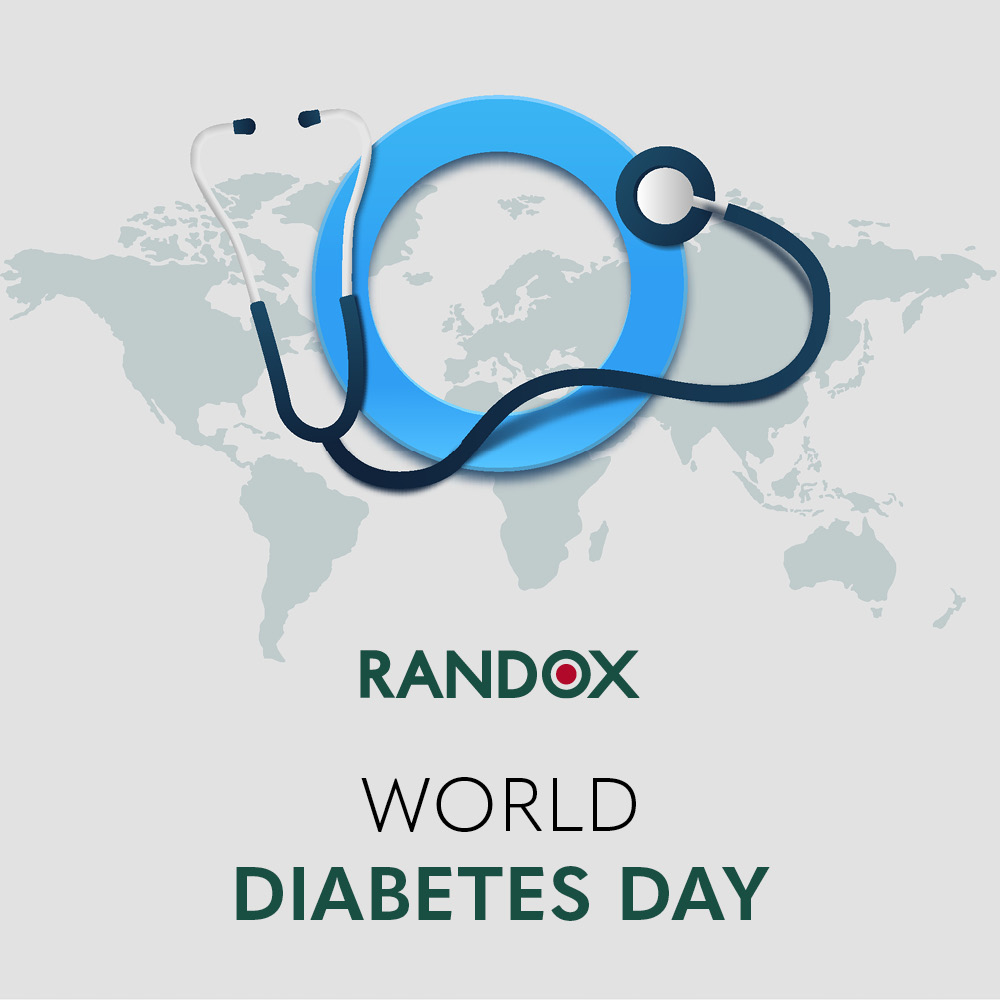Celebrating World Diabetes Day 2022!


Celebrating World Diabetes Day, 14th November 2022!
Diabetes is a serious medical condition that causes blood glucose (sugar) levels to become too high. This can cause complications such as heart disease, stroke, kidney problems or nerve damage if not treated.
Although there is no cure for Diabetes, the condition can be controlled and monitored.
There are three main types of diabetes, type one, type two and gestational diabetes. The former two are lifelong and can cause life threatening complications if not monitored effectively.
Type one diabetes is when the body can’t make insulin, which is thought to be caused by an autoimmune reaction. In the UK, around 8% of the population have type one.
Type two diabetes is generally caused from lifestyle, when the pancreas doesn’t work properly and can’t keep your blood sugar levels from rising. Type two represents around 90% of people with diabetes in the UK.
Gestational diabetes Mellitus (GDM) is a form of diabetes that appears in pregnancy, characterised by high blood sugar due to the hormones produced in pregnancy. In the UK, around 5% of pregnant women are diagnosed every year.
Globally, Diabetes affects more than 415 million people, with type 2 being the most common.
People with T1D have an estimated 50% risk of developing Chronic Kidney Disease over their lifetime. CKD can progress to kidney failure, requiring dialysis or a kidney transplant. Taking a personalized approach to kidney disease screening for people with type 1 diabetes (T1D) may reduce the time that chronic kidney disease (CKD) goes undetected, according to a new analysis performed by the Epidemiology of Diabetes Interventions and Complications study group.
World Diabetes Day aims to increase visibility around the condition and can help sufferers feel less alone. Charities such as Diabetes UK also use the day to help promote awareness and information around the condition to help get people diagnosed earlier through campaigns such as #RewriteTheStory.
Randox reagents cover a spectrum of laboratory testing which can help monitor Diabetes and the effectiveness of management. This can help prevent serious complications which can become life threatening.
Diagnosis and Monitoring
Fructosamine (Glycated Protein) has been identified as an early indicator of diabetic control compared to other markers such as HbA1c. HbA1c represents the average blood glucose levels for the previous 2-3 months, conversely fructosamine reflects average blood glucose levels of the previous 2-3 weeks. HbA1c levels may also be impacted by genetic, haematological and disease-related factors. The enzymatic Fructosamine method also offers improved specificity and reliability compared to conventional NBT-based methods and does not suffer from non-specific interferences unlike other commercially available Fructosamine assays.
Complications Monitoring – Ketoacidosis
D-3-Hydroxybutyrate (Ranbut) is the most sensitive ketone for the diagnosis of ketosis, in particular diabetic ketoacidosis (DKA) , because it represents approximately 80% of ketones present in blood during DKA. The nitroprusside method commonly used in semi-quantitative dipstick tests only detects acetone and acetoacetate making it less accurate.
Complications Monitoring – Renal Dysfunction
Cystatin C is extremely sensitive to very small changes in GFR and has been identified as a strong predictor of clinical outcomes associated with chronic kidney disease (CKD). Cystatin C doesn’t have a ‘blind area’ like creatinine. Up to 50% of renal function may be lost before significant creatinine elevation occurs. NICE guidelines recommend cystatin C testing due to its higher specificity for significant disease outcomes.
To find out more visit: https://www.randox.com/diabetes-reagents/
Or email us at: reagents@randox.com
